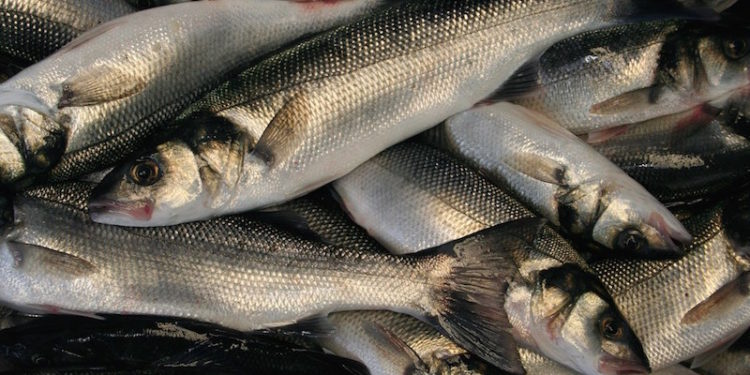The UK-based New Under Ten Fishermen’s Association (NUTFA) is writing urgently to the UK government to highlight the concerns expressed of inshore fishermen along the Channel coast concerning the impact of some of the biggest trawlers in the world operating in the confined waters between the UK and France. The finger is pointed firmly at the Dutch pelagic operators, and the concern is that these large vessels could be catching bass that is not available to small-scale fishermen.
‘Although this armada of foreign-owned super trawlers is legally permitted to fish in the area for pelagic species such as horse mackerel, it beggars belief that they are not catching bass when they are fishing exactly the same areas where many small bass boats made a living before being banned by the MMO,’ said NUTFA director Jerry Percy.
‘The UK pelagic fleet was previously banned from fishing for bass in the South West Approaches on the basis of a by-catch of dolphins and the south coast small boat fleet was banned from drift netting for bass in exactly the same areas as these boats are fishing in order to let the stocks recover. If these boats are scooping up big quantities of bass on a regular basis then what is the point of our sacrifices? If the UK and EU Administrations are serious about protecting bass and other species then we need to know the level of bass catches and discards from the enormous nets being used in the narrow confines of the English Channel.’
In writing to the Government, NUTFA is reflecting the concerns of under ten metre operators who expect to know the number of at-sea and landings checks made on these vessels, the level of by-catches and discards of cass, cetaceans and other species; and, in the event that they are having an impact on stocks that others are so heavily restricted in pursuing, what the authorities are going to do about it.
‘When you compare the fishing power of these vessels that are entitled to use nets of immense proportions with the gear our inshore guys are allowed to use and then contrast the wide-ranging regulations and restrictions enthusiastically enforced by a range of agencies on our guys with the seemingly low level of inspections on these mega boats, then we are entitled to ask questions and get answers in terms of the management, regulation, monitoring, balance and genuine commitment to sustainability for bass and other species in light of the catching power of these boats,’ Jerry Percy said.
‘It’s a bloody travesty,’ said one south coast fisherman who preferred not to be named.
‘When I’m allowed to fish for bass, I’m restricted to a small amount of by catch only from my fixed nets, I’m not allowed to use drift nets and the trawlers here are restricted to a 1% by catch to a maximum of 100kg a month. If these boats are limited to 1% it would still be more than everything we are allowed to catch based on the tonnage they land. We have the MMO breathing down our necks in case we’ve stashed a bass, and all the while these boats are left to fish in the same areas as we fish and with apparently no one asking questions about their impact.’
‘You can’t tell me with the size of the nets they are pulling that they’re not catching other stuff. If the past is anything to go by, there will be plenty more of them out there shortly,’ another fishermen warned.
‘Clearly in this instance the MMO could allay any fears by publishing a list of the inspections of these factory trawlers including the dates, areas fished and any findings of concern,’ said Chris Williams of the New Economics Foundation, who is also an appointee to the Sussex IFCA committee.
‘It would be unjustifiable if there haven’t been inspections of vessels with such immense catching capacity. The MMO could usefully provide information to prove (or not) that these are ‘clean’ fisheries that are following the rules. Failing that, under a freedom of information request these findings should certainly be made public.’









